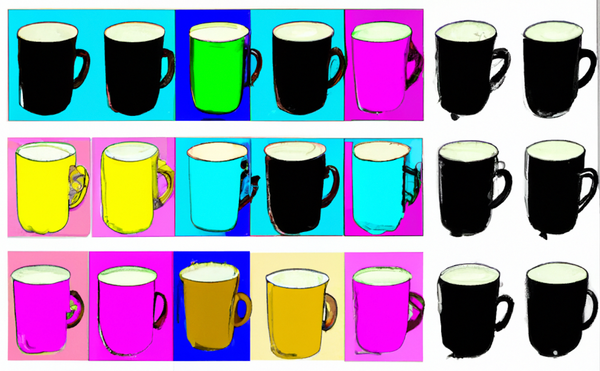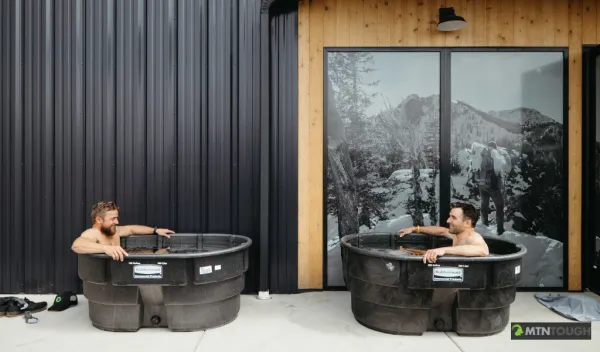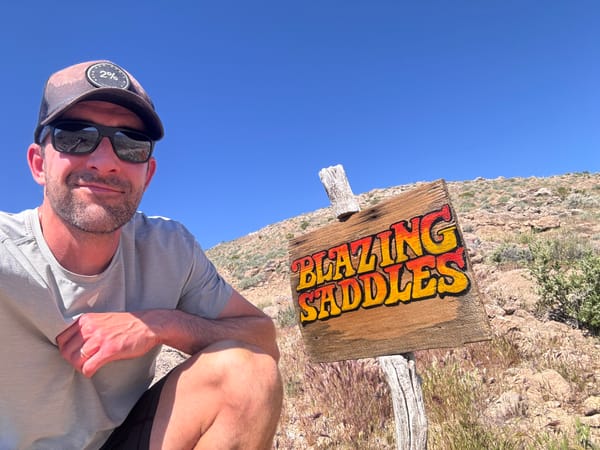8 Sleep Tips That Actually Work

Sleep advice is rife with misinformation because we all sleep differently—evolution programmed us that way. We dug through the science and spoke to researchers to determine the best sleep tips.
Why it matters: Improving poor sleep is magic for your health and performance.

Monday we explored 6 Big Sleep Myths. Today we’re following up with actionable advice on how you can sleep better. But first, catch up quick.
ICYMI: Last week went like this:
You’ll have full access to all of 2% until 5/31. On 6/1, you’ll need to be a Member to see everything. Non-members will still get one free weekly post (just as 2% has always been).
Want to be a Member? Good. The Launch Special—15% off an annual membership—is still up, running, and rocking.
Onto today’s topic …
Monday’s takeaway was that people sleep differently for good evolutionary reasons. And that’s precisely why hyper-specific sleep advice often backfires. We read stuff that makes us worry that our sleep isn’t perfect—and worrying keeps us up at night, hurting our sleep even more. It’s a sleep death spiral.
As Dr. Jade Wu, the sleep researcher at Duke University Medical School, put it:
“Just as you don’t need to have a ‘perfect’ meal at every meal in order to maintain nutritional health, you don’t need to have flawless sleep every night. In fact, sleep is designed to be elastic because your body’s needs and the environment’s conditions are constantly changing. Letting go of sleep perfectionism can take a lot of pressure off of the moment when you aren’t falling asleep right away or when you wake up during the night.”
Ask Yourself 4 Questions About Your Sleep
We’re starting today with an important questionnaire, which we got from Harvard professor Daniel Lieberman. He developed it based on a deep analysis of sleep research, particularly this famous paper on sleep.
Before you try to correct any sleep issues you think you have, Lieberman suggests you ask yourself the following questions:
- Am I generally satisfied with my sleep?
- Do I stay awake all day without dozing?
- Do I spend less than thirty minutes awake at night?
- Do I get between six and eight hours of sleep a night?
If you answered yes to those four questions, thanks for reading. Keep resting easy, and we'll see you Friday.
If you answered no, these eight tips may help you start to solve what could be a legit issue.
1. Find your ideal sleep time and try to stick to it
You’ve probably heard of circadian rhythms. These are our “biological clocks.” But our clocks, surprisingly, don’t match the 24-hour rotation of the earth. And they aren’t all the same.
Some people’s circadian rhythms, or biological clocks, are less than 24 hours. Some are 25 hours. The average is 24.1 to 24.3 hours.
Scientists say that people with longer clocks tend to be night owls. People with shorter clocks tend to get sleepy earlier in the evening. And our clocks change over our lifetime: In our teens and twenties, we tend to be night owls, but as we age, the curve shifts, and we often become the “early to bed, early to rise” people.
Instead of fighting this, lean into it. Do this:
- Figure out your sleep clock. The Duke researcher Jade Wu told Forbes, “The easiest way to know your chronotype is to ask yourself, ‘If I were on vacation on a deserted island for a month, what time would I naturally want to go to sleep and wake up?’” I.e., if you get sleepy at 9 pm, it’s fine to go to sleep. If you aren’t sleepy at 9 pm, don’t force it. Forcing it backfires.
- Jerry Siegel, a UCLA Center for Sleep Research scientist, told us, “The simplest approach, which often works, is to awaken at the same time every day.”
Why it works: Understanding your natural rhythms and waking at the same time allows your body to sort of “tell” you how much sleep it needs. In turn, you’ll become tired at the ideal time each night.
2. Don’t drink caffeine after noon
Siegel told us this simple rule works wonders for his patients.
Caffeine “works'' by binding to the receptors in our brain that lead us to feel tired. It also has a half-life of anywhere from 2 to 5 hours. Half-life is an estimate of the amount of time it takes for the concentration of a drug in your body to be reduced by half.
What this means in a common, real-life scenario: A venti Starbucks drip coffee (“venti” is Starbucks for large) has 400 milligrams of caffeine. The Mayo Clinic suggests we all keep our caffeine consumption under 400 milligrams a day. Going above that level seems to make enough (but not all) people have side effects—insomnia, anxiety, and more—that they think it’s good general advice.
Hence, if you drink a venti Starbucks drip coffee at 3 pm, you’ll still have a significant amount of caffeine in your system when you go to bed. Two notes:
- There is some nuance here. People can adapt to high levels of caffeine; some people are more affected by caffeine than others; etc. But if you’re concerned with your sleep and hammering caffeine in the afternoon, stop caffeinating before noon and see what happens.
- Caffeine’s half-life more than doubles if you are pregnant, according to researchers in Switzerland. This is one reason why women who become pregnant and continue their regular coffee consumption often report sleep problems during pregnancy. They think it’s the pregnancy, but it’s really that the same amount of caffeine they used to drink now stays in their system four times longer.
3. Try CBT instead of RX
I mentioned to Jerry Siegel, the famed sleep researcher, how Monday’s post covered the myth that sleeping pills are a good long-term solution for sleeping problems.
His response: “I would double down on the sleeping pills point,” he replied. “It’s a major myth that sleeping pills help you. The extant evidence is that chronic use of sleeping pills shortens lifespan.”
Cognitive behavioral therapy (CBT) is a better approach.
CBT is so effective that most big medical boards—like the American College of Physicians, Sleep Foundation, V.A., and more—recommend CBT as the top treatment for insomnia. It works and has no side effects.
- Here’s why it works: Imagine you wake up in the middle of the night. What happens? You probably then worry that you won’t go back to sleep. And if you can’t fall back to sleep, you worry your day tomorrow will be a mess. And if your day tomorrow is a mess then … This is the sleep death spiral.
Poor sleep is often driven by our thoughts—by the sleep death spiral. CBT kills the sleep death spiral. It helps us identify and overhaul the “thoughts, feelings, and behaviors contributing to the symptoms of insomnia,” as the Sleep Foundation put it.
Here’s Dr. Jade Wu again, pulled from her appearance on Plain English:
(CBT is) kind of like doing physical therapy, but for your sleep … It's very tailored to you because, you know, (if you had) 10 different people with 10 different broken ankles, you might have to treat them all slightly differently. Same thing with insomnia, right? So it's very data-driven and it's very personalized … Lots of changing your schedules and trying different skills and tools. At the end, you are hopefully not only sleeping better, but you have such a good relationship with your sleep that you can weather changes and challenges in the future.
- Downsides of CBT: It involves a specialist.
- Upsides: Sleep is worth it and most people only need a handful of CBT sessions.
Here are resources if you’re interested. Note: Many providers meet remotely online.
If you’re currently on a prescription sleeping pill, please speak with your doctor about safely transitioning from sleeping pills to other methods like CBT.
4. Mess with your room’s temperature
If you read the piece on sleep myths, you know that sleeping in total darkness and silence doesn’t work for everyone. It can backfire for many people. Like my wife!
Temperature, on the other hand, does seem to alter sleep. Just as humans evolved to sleep in “bedlam,” as Harvard scientists put it, we also evolved to outside.
In the outdoors, the temperature usually drops below what it was in the day. So we may be adapted to feel like falling temperature is a cue to sleep. To prepare for this nightly cooling, most mammals “curl up” to get warm. This process—get warm as it gets cold—may still help us today.
If you’re struggling to sleep, try dialing your room’s temperature down before you go to bed and see what happens. Don’t go too cold, though. One old study found that rooms that were too cold impacted sleep more than rooms that were too hot.
Start at 68 and go from there. Yes, your air conditioning bill will be higher in the summer. But you’ll also be more productive the next day and potentially save on medical costs down the road if it improves your sleep.
5. Distract yourself
You’re not weird if you wake up in the middle of the night. Even great sleepers wake up an average of about 12 times each night. We usually don’t remember most of these wakeups.
Problems arise when we wake up and then obsess about how we need to get back to sleep. Again, this is the sleep death spiral.
If you only wake up for longer periods every now and then, a quick fix is to just distract yourself.
“You don't want to dread the act of being awake during the night because there's nothing inherently wrong with that,” Dr. Wu told Plain English. “Do something that takes up “just enough of your attention that your mind doesn't go to anxious places (and) end up spiraling. It's almost like counting sheep is not good enough because that's too easy. Your mind will start spiraling anyway, if you're prone to worry … so do something fun and enjoyable.”
I’ve found that doing the day’s meditation on the Waking Up app helps. Or you could listen to an audiobook or podcast. Or read. Wu said you can even watch a rerun of your favorite show (my wife often does that). Stop listening, reading, or watching once you start to nod off.
And if you’re stressed about the next day’s to-do list, Dr. Trevor Kashey suggested, “Write down your stressors and the times you will address them,” he said. The Ziegernik Effect suggests we remember (and often obsess over) uncompleted tasks more than completed ones. Writing down the unfinished task and exactly when you’ll complete it can help you feel enough closure to fall back asleep.
6. Go outside during the day
Andrew Huberman has made the practice of getting 15 minutes of direct sun exposure within 90 minutes of a wakeup a certifiable **thing.** He’s done such a great job promoting the behavior that it’s become a meme.
It’s great advice. It’s also very specific advice.
Dr. Wu, who studies sleep, suggests that just going outside at any point in the day is likely equally beneficial.
“It doesn't necessarily have to be early in the day,” she said. “(Going outside) during the day is better than not. More sunlight during the day is better. And why is that? Because that tells our circadian rhythms when it's day and when it's night. And the less confused it is about the timing, the better quality sleep and better quality.”
TL;DR: If you can follow Huberman’s advice, excellent!
But if you have other stuff to do in your first 90 minutes and don’t have 15 minutes to give, just go outside sometime.
I’m more in the Wu camp on this one. I use the mornings to write and go outside later. My sleep hasn’t suffered.
7. Exercise—But Not Before Bed
Scientists aren't entirely sure how exercise makes us sleep better. But who cares? When analysts at the sleep foundation looked at all the studies, they concluded:
“(People) who experience poor sleep are less active than those with healthy sleep cycles. In particular, people with certain sleep disorders are not as likely to exercise during the day. Adults with insomnia tend to be less active than those without insomnia.”
If you exercise, you’ll not only (probably) sleep better. You’ll also (definitely) reduce your risk of dying at any given moment, feel happier and more energetic, and more. Even hitting 8,000 steps a day can help.
- The catch: You also don’t want to do intense exercise within four hours of going to bed. “Body temperature can remain elevated up to two hours post-workout, making it difficult to decrease core temperature and induce sleep,” explained the wise Trevor Kashey, Ph.D. (I once learned this the hard way. I went for an evening run on a 100-degree day. I didn’t sleep at all that night.)
8. Don’t drink or eat before bed
In short: Booze and big meals before bed tend to mess up our sleep.
Researchers in the UK analyzed the data on how alcohol impacts sleep and wrote, “At all dosages, alcohol causes a reduction in sleep onset latency, a more consolidated first half sleep and an increase in sleep disruption in the second half of sleep.”
The answer for most of you isn’t to cut alcohol altogether. It’s to make a rational choice about when you’re willing to give up a bit of sleep quality for a few drinks. For example:
- Let’s say you have a big presentation on Wednesday morning. Drinks on a Tuesday night because you’re bored are probably a bad idea!
- Let’s say you have nothing going on Saturday morning and are seeing your favorite band on Friday night. Drink up!
As for eating, my friend Peter Attia, author of Outlive, analyzed the research, spoke to experts, and concluded it’s best to not eat three hours before bed.
Two reasons:
- Your food hasn’t fully digested, and lying down impairs digestion. This means you’ll likely get acid reflux, which can disrupt your sleep.
- Digestion raises your body temperature, which is at odds with falling asleep. Higher protein meals raise your temperature most.
If you have to eat right before bed, it won’t kill you. Some of you may sleep fine after eating. But it’s a good practice for most people.
If you have a sleep tip you that works for you, drop it in the comments!
Thanks for reading. Have fun, don’t die (and go to sleep).
-Michael
P.S. If you liked this post, please share it.
Quick reminder that you can get a discount from both of our partners below by using the code EASTER. I only partner with groups whose products I’ve used for at least a year.
Sponsored by GORUCK
When I decided to accept sponsorships for this newsletter, GORUCK was a natural fit. Not only is the company's story included in The Comfort Crisis, but I've been using GORUCK's gear since the brand was founded. Seriously. They've been around ~12 years and I still regularly use a pack of theirs that is 11 years old. Their gear is made in the USA by former Special Forces soldiers. They make my favorite rucking setup: A Rucker 4.0 and Ruck Plate. P.S., I can now get you a deal on any GORUCK product. Use discount code EASTER for 10% off.
Sponsored by Momentous
Momentous made me feel good about supplements again. Over 150 professional and collegiate sports teams and the US Military trust their products, thanks to the company’s rigorous science and testing. I don’t have the time or desire to cook perfectly balanced meals that give me all the necessary nutrients and protein I need (let’s face it, few of us do!). So I use their collagen in the morning; Recovery protein during hard workouts; essential multivitamin to cover my bases; creatine because it’s associated with all sorts of great things; and Fuel on my longest endurance workouts on 100+ degree days here in the desert (because Rule 2: Don’t die). And I also love (love!) that Momentous is researching and developing women-specific performance supplements. Use discount code EASTER for 15% off.




